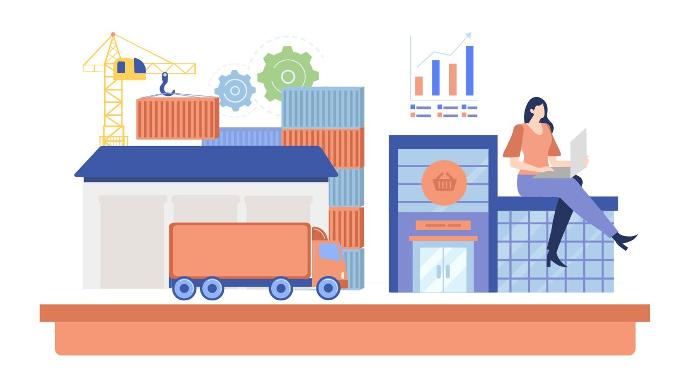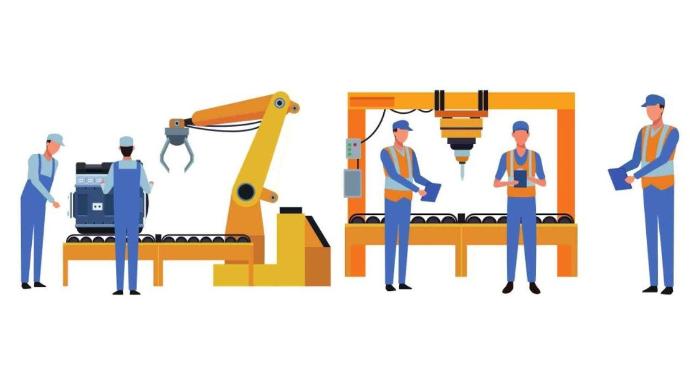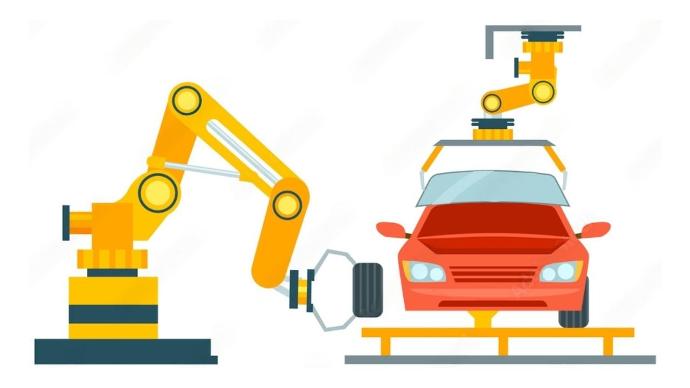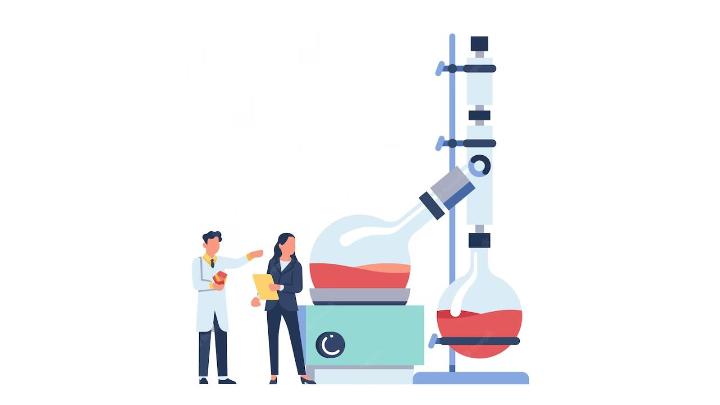Enterprise Resource Planning software is a powerful tool for businesses. It collect, store, and manage data from all the departments of a company.
And Guess what?
It not only gives you a clear view of how the company works, but also helps you keep an eye on important areas like Procurements, stock of raw materials, cashflow, production Tracking, Quality control and many more. The way Enterprise Resource Planning is spreading shows that it's really important for successful companies.
As the growth of ERP systems for businesses aiming to blend data, apps, and users, has a history tied to manufacturing. Initially, it referred to systems in the early 90’s that managed things like accounting and human resources alongside manufacturing.
Do You Know?
In the past years, ERP has evolved like crazy. No matter the field, ERP software companies are taking the lead. Are you curious about which industries can use ERP software?
In this Blog, we'll explore which industries can boost their productivity and efficiency using integrated ERP solutions.
What is Enterprise Resource Planning (ERP)?

An ERP is a cloud-based version that helps businesses run across the country and uses a single database for cross- channel functioning helps in business management smoothly and dynamically. ERP systems can collect, store and process data across multiple channels that enable different business activities to run together.
These are all activities from different departments such as, procurement management, inventory management, accounting, supply chain management, project management and even HR. Companies can analyse the flow of demand & get customised ERP Systems with their particular business requirements.
Some of the benefits of ERP Software :
- Integrated real-time data drives informed business decisions.
- Cloud Based accessibility to use anywhere.
- Improve business reports with one system.
- Your data is safer because it's always backed up.
Don't Just Read About Success,
Take the Next Step
Let's Schedule a Consultation Meeting
Which Industries can Benefit from an ERP System?
ERP is important for every type of business, regardless of size or industry. If you're looking for a system to manage everything, consider ERP as your reliable companion. It suits various businesses, even the smaller ones.
Industries like construction, banking, manufacturing, retail, consumer goods, and distribution have found great benefits with ERP systems. ERP has helped them save money, work better, and give better service.
Using ERP tools, these industries can keep track of things, manage supplies, and give quick updates to top decision makers. From big companies to smaller ones, ERP has improved how they work and succeed in their own special areas, like being efficient or getting the most from their supply chains.
ERP for Manufacturing
Manufacturing businesses often use ERP software to handle their complicated processes. A cloud-based ERP can keep track of materials, manage what's in stock, and plan production. It's also handy for checking quality and keeping an eye on finished products.
ERP helps manufacturing go faster and brings benefits to each department. It also helps companies figure out what sells best and lose, so they can buy smarter and bring new ideas to the market.

ERP in the Manufacturing Industry can help in:
- Inventory and supply chain management.
- Machine Performance and good quality of product assurance.
ERP for Retail
In the Retail Industry, businesses sell products and manage related tasks. When a retail business grows to many stores, managing everything becomes tough. Retail ERP can help make things easier by organising tasks in different stores.
By putting all store activities in one database, your stores can stay consistent. This makes retail less chaotic, and things work better and the same way everywhere.
So, when all the stores work together using one shared database, they can be more consistent. This helps retail businesses be less chaotic and work better, following the same rules and being more efficient.
Following are the ways to use ERP in retail business :
- Making bills is simple
- Keeping consistent price across stores
- Manufacturers handle transactions in an organised way.
- Simple exchange and return of products
- Managing employees and paying them efficiently.
- Having a system that connects both offline and online stores.
ERP for Automotive Industry
The automotive industry has to be really competitive. By that means they require an efficient centralised system that can help them to keep up with market trends. Hence, like any other industry, a centralised digital platform is necessary to keep track of every business operation.
The automotive industry is highly competitive. Because of this, they need an effective centralised system to stay updated with market trends. Just like any other sector, a digital platform is crucial for tracking all business operations.
In the automotive industry, ERP is a helpful tool that connects software and hardware for better performance.

Here's how they use ERP:
- Getting timely information about design mistakes.
- Handling inventory and raw materials.
- Dealing with customers and their feedback.
- Integration of design and Quality Management.
- To Follow safety rules and regulations.
- Staying updated on what customers want and market trends.
ERP for Food Industry
As this industry deals with perishable items. The timely manufacturing, preparing and dispatch of the things that are the backbone of the industries. So, ERP for the food industry can channel all these activities to minimise waste and increase productivity.
However, ERP databases keep information to maintain across multiple channels. This helps to handle issues dealing with stock and updates.
Some of the uses of ERP in food Industry:
- Following progress using profit graphs.
- Checking how much it costs to make food, including the price of materials and making it.
- Making bills and reports quickly and well.
- Reduce Human error in warehouse operation
- Managing of food safety and regulations
- Efficient control of inventory in store and warehouse
ERP for Plastic Industry
The plastics industry also needs ERP systems to cut waste and manage supply chain management. The production of chemical materials needed for plastic will be monitored by ERPs by establishing different ways to increase use of raw materials & reduce scrap.
ERP for Chemical Industry
Companies that make and sell chemicals have to deal with lots of things like rules, permissions, quality improvement, and planning costs. ERP for the chemicals industry gives them tools to handle these tasks easily. With ERP, they can save money on labour, handle work at different places, and do bills quickly.

Some of the uses of ERP in Chemical Industry:
- Function Efficiently (From Manual to Automation)
- Risk Management (Reduce Human Error)
- Getting ready for Future (early investment for future growth)
Why to Choose Us?
Thanks to ERP software, things are simpler and more efficient. Many ERP projects today are more competitive due to their effective solutions. Plus, there's a wide range of cloud software available now.
Considering all the benefits of ERP software mentioned earlier, it's clear that ERP is crucial – but with Teknovative Solutions, you're on the right track.
Benefits from ERP System such as :
- Sales Forecasting which helps Inventory better.
- Keeping track of every transaction in every area of service with collected data.
- Track of order, from when they’re accepted.
- Revenue management, from invoice to payment.
- Checking Sales orders, inventory receipts and costs.
If you have more questions about Why ERP for Industries, we're here to help. Teknovative Solutions is a leading provider of ERP solutions to industries and businesses. Reach out to us now for cutting-edge ERP solutions.
best erp for business,erp software companies,cloud based erp,erp for automotive industry,food and beverages erp system,erp implementation in manufacturing industry,best erp system for supply chain management,enterprise resource planning systems (erp),which industries need erp
Don't Wait for the Right Time,
Let's Talk & Implement it
Let's Schedule a Consultation Meeting